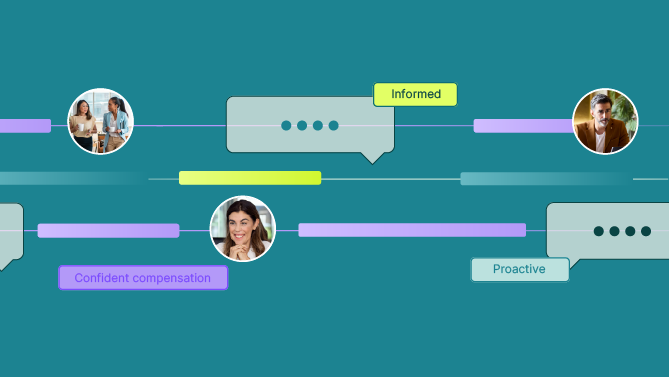Powerful research to help you get pay right
Browse proprietary research and meaningful facts from our data science and editorial teams. Discover thought leadership on compensation data and pay best practices.
Featured content

The four pillars of pay communications
Our Four Pillars of Pay Communications walks you through what you need to communicate pay decisions effectively down, up, and across your organization.

Your compensation translator
Don’t let miscommunication sink your comp strategy. Grab this quick guide and start telling a pay store no one will ignore.

Communicating with employees about compensation
What’s the trick to nailing employee pay convos? Well, it depends. Is your employee receiving good news or bad? Did they knock it out of the park this year? Or did their performance falter? This guide offers talking points and tips for nearly every scenario.

The 2025 Playbook for Job Description Success On-demand Webinar
Join job description experts as they discuss how to effectively manage job descriptions across your organization.

Pay Confidence Gap Report
Payscale surveyed both employers and employees and measured the gap in confidence when it comes to trust in pay decisions, with insights on salary misinformation from social media and AI and concerns about economic uncertainty, cost of living, and rewarding performance.

2025 Fair Pay Impact Report
Employees do not perceive that pay is fair even when it is and are more likely to seek a new job because of it. Our 2025 Fair Pay Impact Report shows that wages are fairer now than in 2021. Unfortunately, perception of fair pay has gotten worse.









